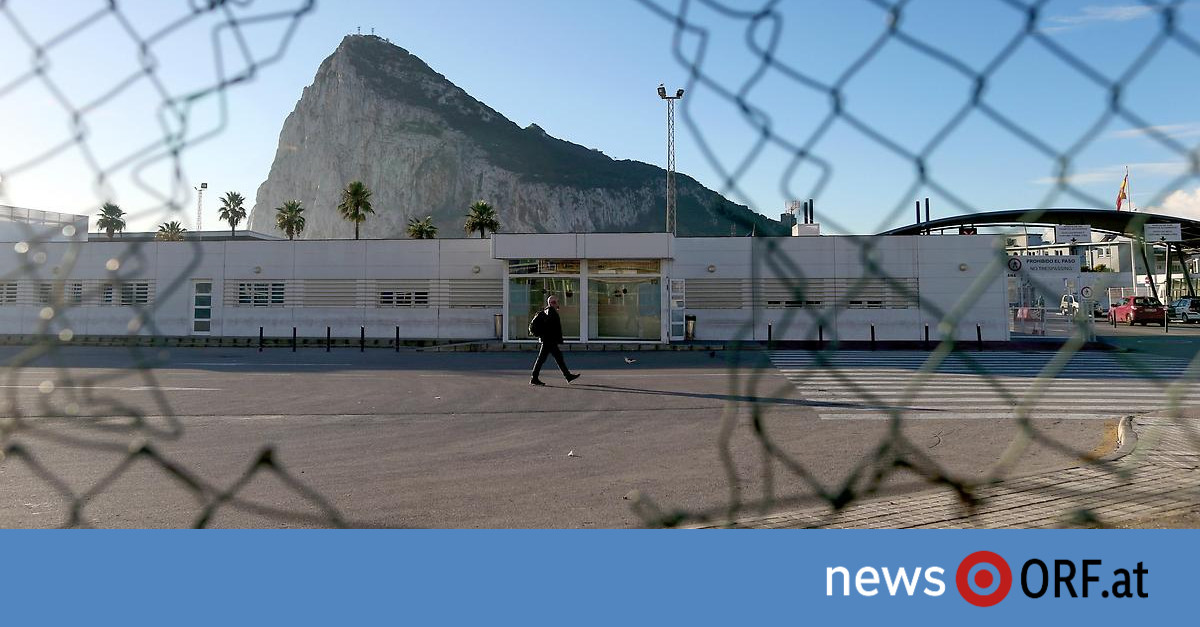Negotiations on Gibraltar’s post-Brexit relationship with the EU are taking place at two levels: between London and Brussels and between London and Spain. An agreement with Spain is a prerequisite for an agreement between the UK and the EU.
Spanish Foreign Minister Jose Manuel Albares said on Wednesday evening that Madrid and London had agreed to “try to make progress as quickly as possible” in order to resolve differences over visa exemptions for residents of Gibraltar and Spain – and then in the Schengen area – to be overcome, reported Politico. An agreement in this area is particularly important for the approximately 35,000 residents. Because many of them go to work in Spain every day.
De facto part of Schengen?
“Spain is ready for an agreement,” Albares said at a joint press conference in Madrid with his British counterpart James Cleverly after a meeting between the two arranged on short notice. Fabian Picardo, prime minister of Gibraltar, more or less comparable to a head of government, was present via video link.
The most recent deliberations have focused on a detailed proposal from the European Commission to remove the border barrier and transfer customs controls to the port and airport of Gibraltar. The fence has been the cause of many quarrels in the past. According to Spain, such a move would make it responsible for controlling Gibraltar’s external borders.
Controversial for centuries
The small rocky outcrop, although of strategic importance due to its position on the north side of the Strait of Gibraltar, has been under London sovereignty since 1704, following the War of the Spanish Succession. Gibraltar was officially ceded by Spain in the Treaty of Utrecht in 1713, but has since been claimed by Spain.
Albares then stressed that an agreement is now closer than before the meeting. And: You’re making progress “at a good pace.” Shortly before the press conference, Albares was caught on camera telling Cleverly, “We’ve got it. We’ve done it.”
Cleverly – “tremendous” progress.
Cleverly he also spoke of “tremendous” progress. However, there is still disagreement on some points. He expressed his belief that it would be possible to conclude a treaty respecting the positions of Britain and Spain on the sovereignty of Gibraltar. “We fully support efforts to reach an agreement as soon as possible,” Cleverly said.
At the same time, negotiations are underway in Brussels to define post-Brexit relations between Great Britain and the EU with regard to Gibraltar. The negotiations, which began in 2020, have been hampered by the CoV pandemic, the war in Ukraine and the two changes at 10 Downing Street.
The chance may end soon
Both sides are interested in a conclusion to the negotiations: next year there will be several local elections in Spain which, depending on the outcome, could make an agreement more difficult. In polls, gains are expected for the conservative People’s Party and the right-wing Vox party. Both have called for the border with Gibraltar to be closed. And Madrid will take over the presidency of the EU Council in the second half of 2023 and would like to tick this topic off in advance.
However, it is not yet clear if and how quickly an agreement will be reached. Picardo was optimistic, but did not rule out further delays or even failures: “We cannot expect 300 years of dispute to suddenly disappear.”
Concern about the ‘hard border’
Brexit had raised fears that a new “hard border” could emerge between Gibraltar and the EU. But just hours before Britain left the EU on 1 January 2021, negotiators reached a framework agreement under which Gibraltar would benefit from the rules of the Schengen area. The details of the deal have yet to be finalized.
The British exclave in southern Spain, measuring just under seven square kilometers, is completely dependent on imports to supply its 34,000 inhabitants. The agreement was of fundamental importance in order not to complicate the movement of goods with new customs procedures.


